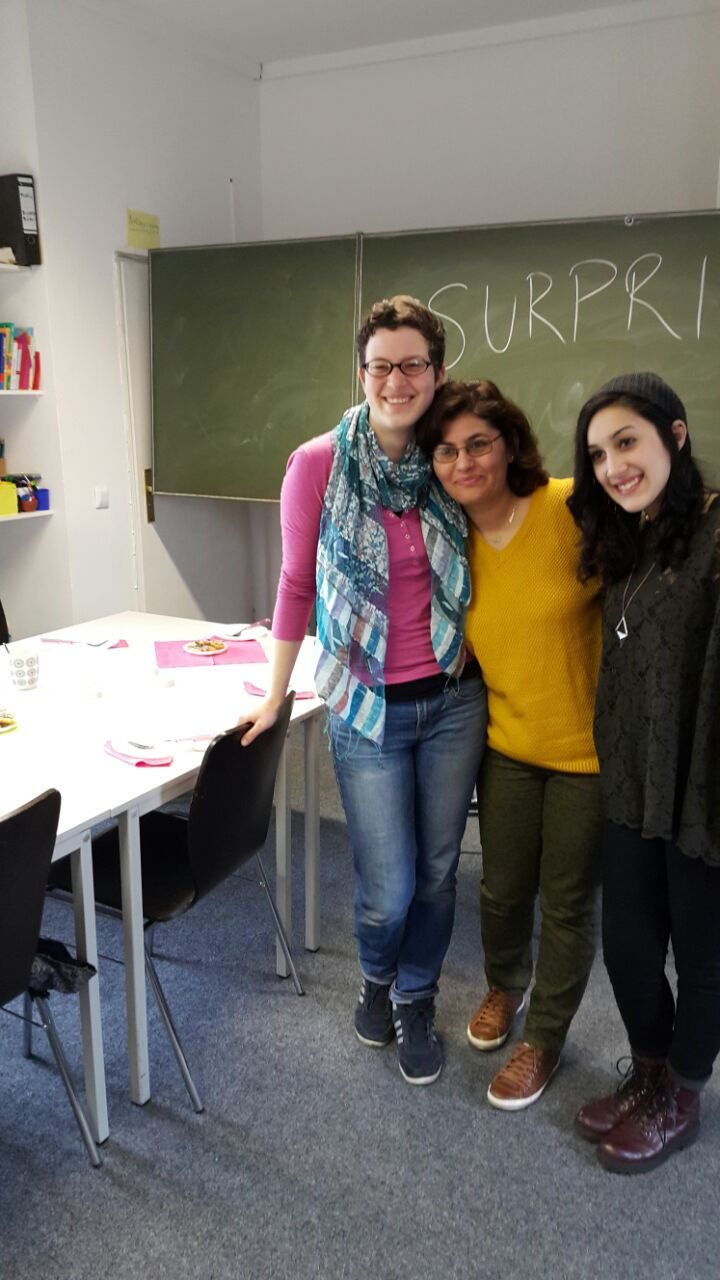
IAS Study Abroad Student Reflections

Student photos from Rebecca Olsho in Chile

Student photos from Rebecca Olsho in Chile

Student photos from Rebecca Olsho in Chile

Student photos from Rebecca Olsho in Chile
Rebecca Olsho
There are not enough words to describe my incredible experience in Chile; from my time in Santiago to my many travels on the weekends, the more I got to know the country the more I fell in love.
During the fall of 2014, I was fortunate enough to spend five amazing months studying at Pontificia Universidad Católica de Chile (PUC) taking three classes in Spanish—focusing on improving my Spanish language skills—and only one in English. It was a great experience, to learn alongside my Chilean peers and to begin to understand things from their perspective.
Not only did I make a core group of Chilean friends, I also had the opportunity to interact with many international students. There were over 1,000 exchange students at PUC, which enabled me to expand my horizons even further and gain lifelong friendships with students from all over the world.
I hardly knew anything about the Chile or the region as a whole before I arrived; however, after interacting with the locals, I learned a lot about the Chilean lifestyle and culture, and eventually started to feel at home.
I learned to love empanadas (stuffed pastry), manjar (custard), and asados (BBQs), as well as to embrace the aspects of the Chilean culture which were foreign to me at first—for example, lots of salt and mayonnaise are not usually part of my daily diet.
Chile is located on the western edge of South America and is a very long, narrow and geographically diverse country—northern Chile is home to Atacama, the driest desert in the world, while southern Chile is filled with magnificent glaciers and icecaps. While traveling across the country you can enjoy skiing in the Andes, hiking volcanos in Villarica, relaxing at the beaches in the north, or visiting museums and shops in Valparaiso and Santiago. The diversity amongst the regions is incredible, and it is amazing to witness how quickly the scenery changes from one beautiful landscape to the next.
In addition to travelling around Chile, I was also able to travel with friends to Peru, Argentina and Uruguay—though these countries are geographically similar, each country has its own very distinct culture, food, and dialect. It was an amazing experience to be able to travel around South America and discover all the similarities, differences, and hidden gems for myself.
Of course, with any experience, sometimes things were harder than I expected—registering for classes at PUC took more than 8 days, which made me appreciate Drexel’s computer-based system! Understanding Chilean slang was also a challenge I had to overcome. Despite these initial setbacks, I know my five months abroad helped me to improve my Spanish skills, expand my global understanding, develop new worldwide friendships, and make memories that will last a lifetime.
You can read more about my travels at http://thechiliischillyinchile.tumblr.com/
Kaitlin Thaker - Co-op in Berlin
My life has been heavily influence by education; I have been fortunate enough to have many wonderful teachers and professors who have inspired me to do things I never thought were possible. My passion for education coupled with my enthusiasm for languages lead me to the realization that I wanted to teach English in Berlin for my international co-op. Fortunately, I was accepted into the Cultural Vistas program in Germany and placed at TIO-Qualifizierungsproket in Berlin.
TIO is more than just a school; it is an opportunity for immigrant women to finish their education and prepare to join the workforce. The students often come from backgrounds where education was never prioritized; many students had to fight for their education, and we, the teachers, fought with them.
The curriculum was designed to enable women to find employment; however, we didn't stop there. We strived to empower our students. Throughout our lessons we taught our students about self-respect, and we empowered them to be independent and stand up for themselves, even when everyone else tried to keep them down.
My main job was teaching English to older immigrants, but I also worked throughout the school teaching many different subjects and even worked with women ages 16-25 who were completing their primary education. Most of our students were Muslim, so we had a strict "No Men" policy to enable our student to attend class without being uncomfortable. TIO aimed to make the school a neutral place for everyone.
The beautiful thing about working with all women is the bond; our relationships often transcended the boundaries of teachers, students, and colleagues. Because many of my students were older, they treated me like a daughter. However, the younger students treated me more like a friend. And my co-workers treated me like a member of their family. Because this special environment was so supportive I was able to vastly improve my German skills and learn the basics of teaching. In turn, I was also able to help a wonderful group of women gain a little more independence in their lives—for that opportunity I am so grateful.
Of course, not everything was rainbows and sunshine; my valuables were stolen when I first arrived to Berlin. But the experiences I had and the people I met were worth so much more to me than a few electronics. I learned so much from my time in Berlin; even though I was technically the teacher didn’t mean that I wasn’t the one who learned the most from my lessons.

Kaitlin Thaker

Kaitlin Thaker

Kaitlin Thaker

Kaitlin Thaker